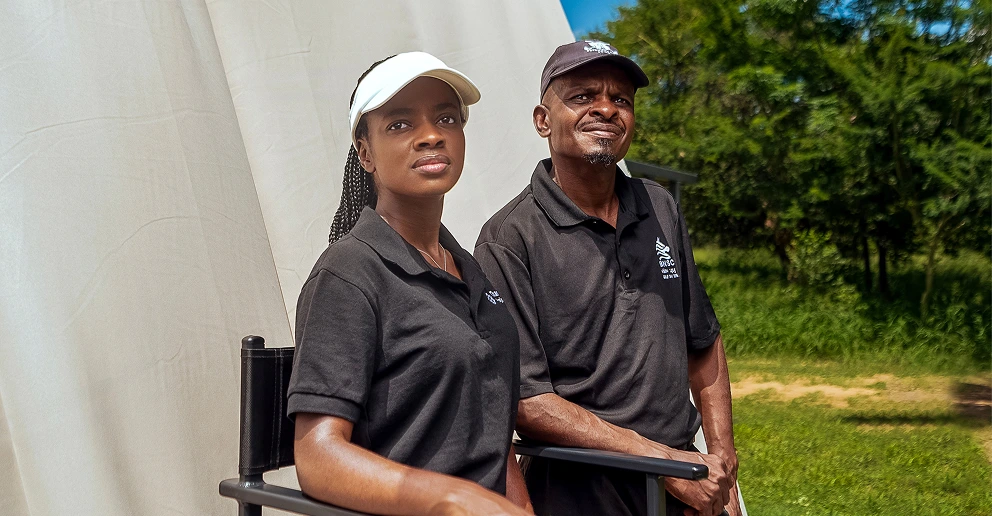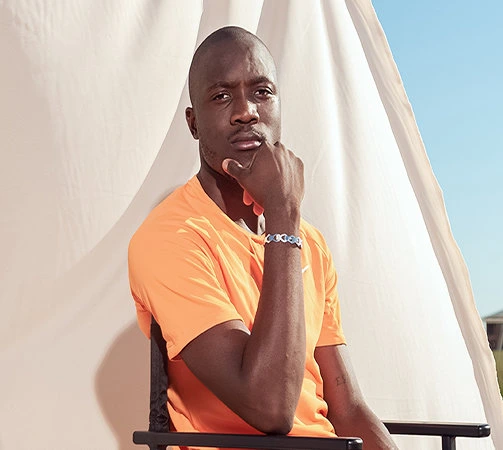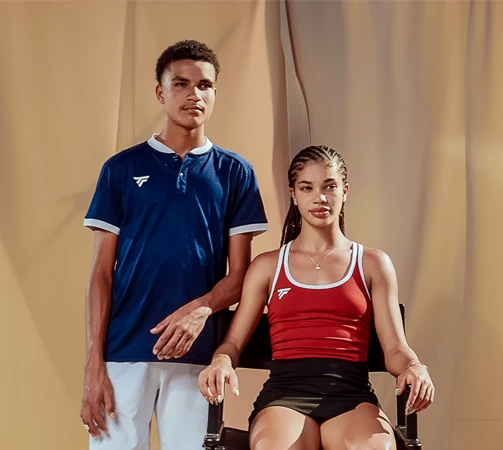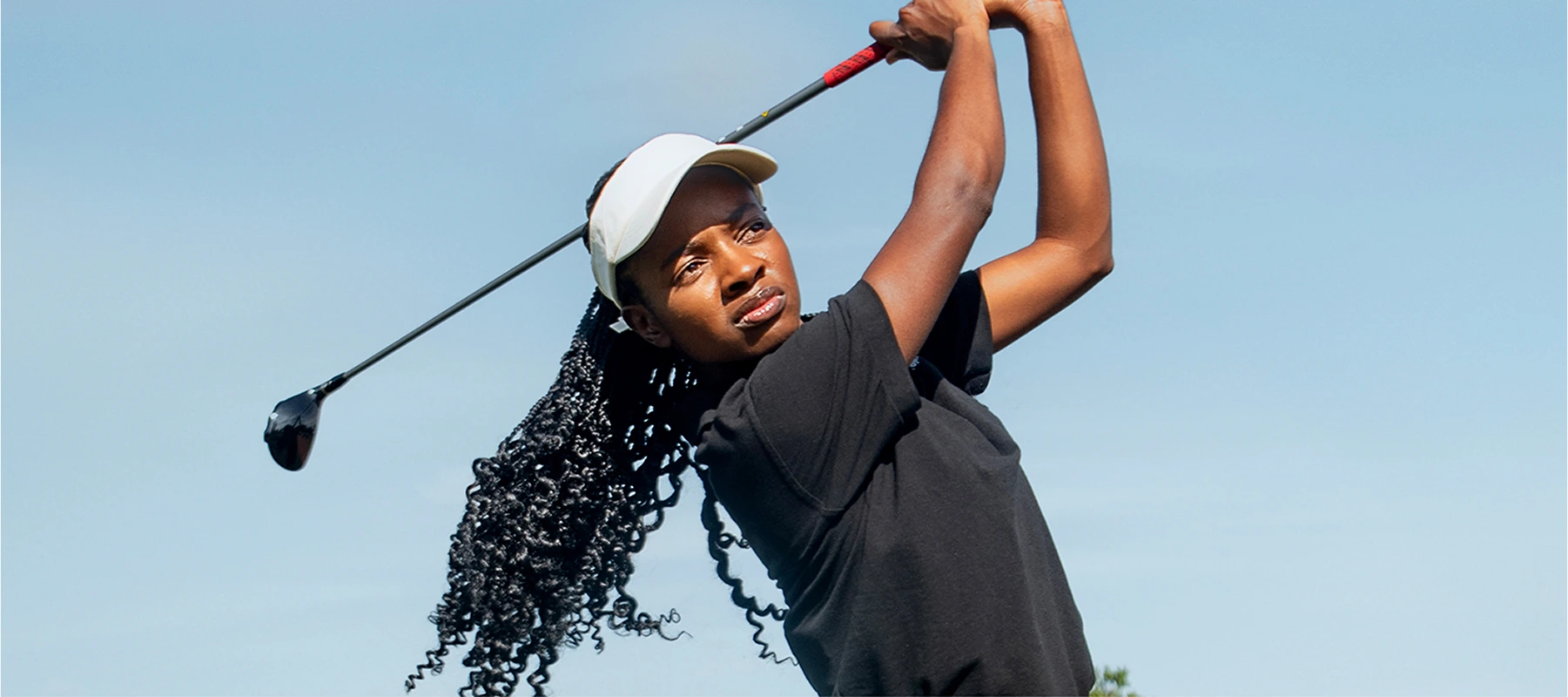From being the lone young woman on Botswana's golf courses to becoming the country's premier golfer, her journey exemplifies perseverance and breakthrough achievement.
As one of Botswana's pioneering athletes, she has transformed from a hesitant beginner into an international competitor, paving the way for future generations. Today, she dedicates herself to nurturing young talent, understanding firsthand the vital role of mentorship in athletic development. Her story reflects the broader success of Botswana's diamond-funded sporting infrastructure, which continues to create opportunities for aspiring champions.
Fortune + De Beers Group | Episode 2 | Q&A: Ouname Mhotsha
Nurturing Botswana’s next generation of golfers

Ouname Mhotsha forged her path as an international golfer. Now, she is giving young athletes the support they need to flourish.
As a child, Ouname Mhotsha spent her time after school swinging clubs at the Stanbic Bank Gaborone Golf Club in Gaborone, Botswana. Although she came from a family of golfers—her father and three siblings play the sport—Mhotsha didn’t take to golf right away. It was hard to see the potential when she was often the only young person and always the only girl on the course.
But her perseverance on the green paid off. By the time Mhotsha turned 13, she had qualified for Botswana’s junior national team, and it wasn’t long after that she was racking up dozens of wins in her country and overseas. In 2018, Mhotsha brought her talent to the track team at Alcorn State University in Mississippi and then furthered her education at the University of Arkansas in Monticello, where received another scholarship to pursue her master’s degree. She was appointed captain of the university’s NCAA District 2 women’s golf team and led her school to its first championship victory after a two-year losing streak.
Mhotsha’s meteoric rise as one of Botswana’s top golfers signifies the power of mentorship. Her success is owed to her drive and hard work, as well as the support she received from her family and community—and she continues to pay it forward. The 29-year-old athlete’s growing initiative, Thanya Monana Projects (part of the Ouname Mhotsha Foundation) provides young girls across Africa with mentorship and advancement opportunities through golf.
The golfer is part of a larger group of pioneering talent that has thrived in Botswana. Today, the country is a world-leading diamond producer, and this industry success has helped support infrastructure for the people of Botswana. Specifically, the longstanding diamond partnership between the government of Botswana and De Beers has provided the country with resource wealth that has been put toward economic development, and the creation of new opportunities in education and sports has helped cultivate talents such as Mhotsha.
Mhotsha sat down with Fortune Brand Studio to talk about her golfing journey and how mentorship can have a lasting impact on the country’s young athletes.

Letsile Tebogo: 21, fearless and first: How Botswana’s...
“I am driven by the desire to show my fellow Batswana athletes that they can succeed from our home soil”
Letsile Tebogo
Naledi and Ntungamili Raguin: Botswana’s Tennis rising...
“We are really proud of playing for Botswana"
Naledi and Ntungamili Raguin

